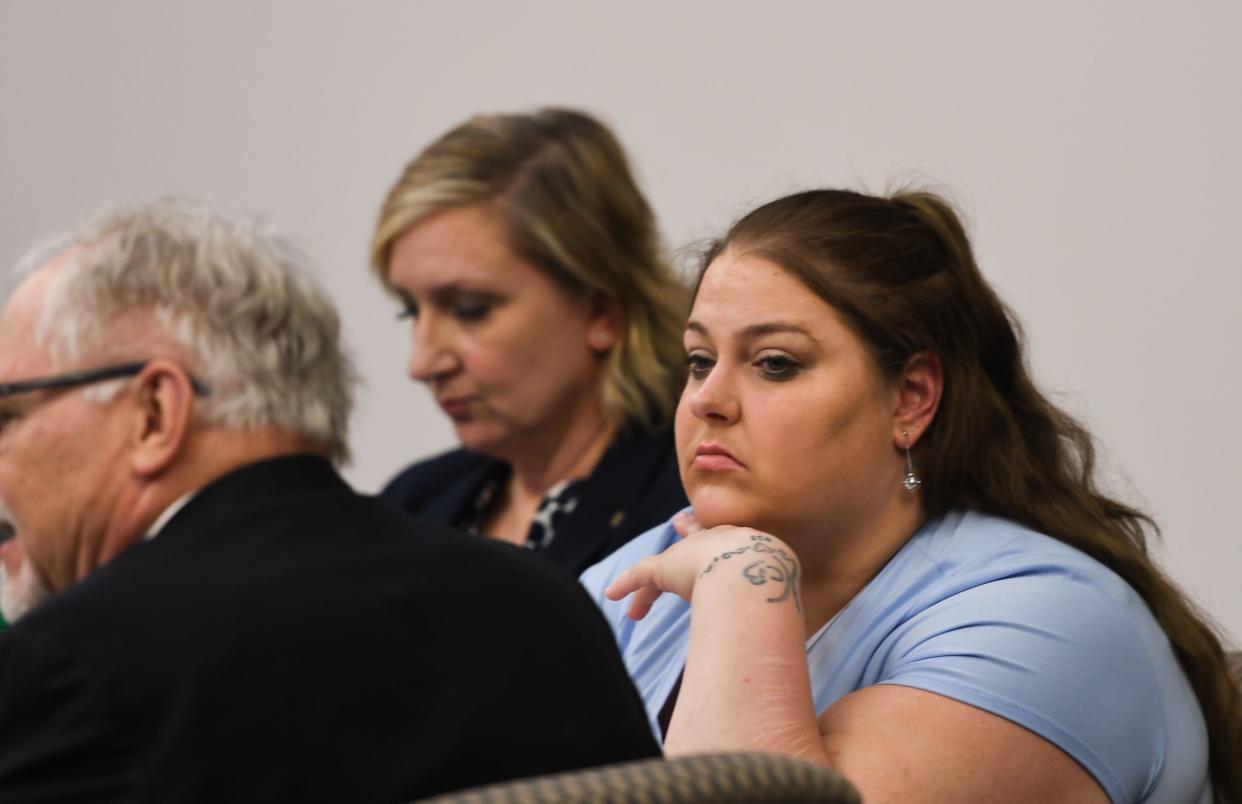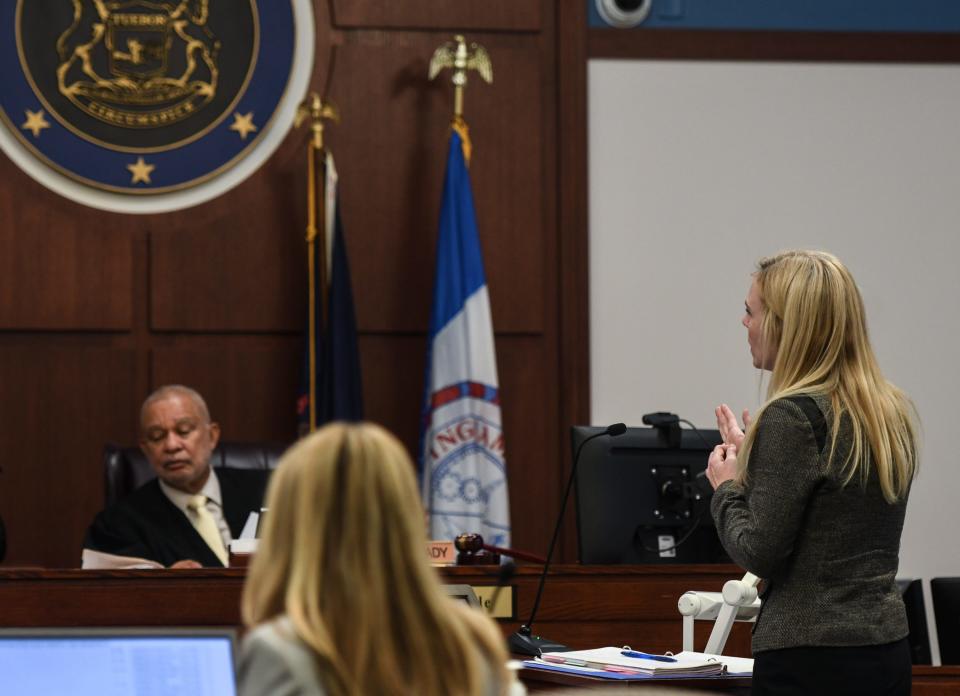Jurors weigh fate of aunt charged with murder, child abuse in 6-year-old's death

LANSING — The tragic saga of Christopher Pratt, a 6-year-old boy with special needs who died nearly five years ago, begins and ends with Jessica Bice, a paternal aunt who took him in after his mother died and his father was removed as his guardian, a prosecutor told a jury on Thursday.
Bice grew increasingly frustrated with Christopher, who couldn't speak or walk without help, and essentially starved him before inflicting head injuries that left him unresponsive on the floor of Bice's home in August 2018, according to the state's theory. Christopher lost about 11 pounds over the last 10 weeks of his life and looked like a skeleton when he died, according to testimony.
"We might not have Christopher's word about what happend to him, but we certainly have evidence that this defendant murdered Christopher Pratt," Assistant Ingham County Prosecutor Kristen Rolph said during closing arguments, noting the boy could not speak and was unable to tell anyone what happened.
But the defense gave a different narrative: That Bice did the best she could after taking in a difficult child when no one else would and was unfairly blamed after the boy began to fail and ultimately died, possibly because of undiagnosed genetic abnormalities.
"It's a complex case," said Duane Silverthorn, one of Bice's attorneys. "There's a lot of things we don't know in this case, (a lot of things) we don't know about Chris."
Bice is charged with second-degree murder and first-degree child abuse. The case went to the jury on Thursday following a marathon trial spanning about five weeks. Jurors deliberated all day Friday and were sent home for the weekend. Deliberations are expected to resume on Tuesday.
Christopher was nearly 7 when he died on Aug. 17, 2018, according to testimony. He had a rare chromosome disorder, autism, epilepsy and other health problems and was unable to speak or walk without assistance.
His mother was his primary caregiver before she died in June 2017. Christopher was placed with his father for a short time but was moved into Bice's care after the father was accused of physically abusing the boy, according to testimony.
Staff at Heartwood School reported Christopher was doing well under his mother's care and appeared to be well-nourished and well-cared-for. But the boy's well-being declined rapidly in the months before he died. School staffers said he appeared to be ravenous when he arrived at school and acted as though he were starving.
They also said his hygiene declined and his mood deteriorated, and they began noticing abrasions, sores and signs of possible physical abuse. The school made referrals to Children's Protective Services, which expressed concerns about Bice as a caregiver but did not remove him from her home.

The boy reached a peak weight of 47 pounds in the spring of 2018, but his weight had fallen to around 40 pounds a few weeks later and he weighed just 29 pounds when he died. Jurors viewed photos of his emaciated body taken after he died.
A forensic pathologist determined Christopher died from blunt force brain trauma suffered within hours or minutes of his death, with caregiver neglect as a contributing factor. The boy's head injuries could not have been self-inflicted, he said.
Bice spent more than a full day on the witness stand this week. She denied physically assaulting Christopher and said she could not explain how he suffered the fatal head injuries. She also maintained the boy was properly fed, even if he didn't always want to eat or threw up his food.
Bice also testified school staff did not always cooperate with her and failed to follow a doctor's instructions about treatment he needed, prompting her to take him out of the school at the end of the school year.
Bice's attorneys also presented testimony from a medical expert who reviewed autopsy and medical records and suggested Christopher might have had extremely rare, undiagnosed genetic problems that could have caused his system to stop drawing adequate nutrition from the food he was eating.
"Chris is genetically a mystery," Silverthorn argued. "We know the presentations, the deficits. We don’t know their origin, don’t know the reasons."
Rolph described the defense expert's testimony as unsupported "nonsense," saying he didn't know all the facts.
Jurors watched a videotaped three-hour police interview of Bice and also saw profanity-laden text messages Bice sent to friends, family or other people expressing extreme frustration with Christopher.
Bice was the only one who could have inflicted Christopher's head injuries, and she never sought medical care for him as he wasted away in the weeks before his death, Rolph argued. CPS and other workers offered to help, but she declined it, then refused to accept responsibility, she said.
"One of the themes in this case is that the defense would like you to believe that this was a system failure, (that) several agencies failed in this case," Rolph argued. "That could be true. And the defendant murdered Christopher. That can also be true."
Silverthorn suggested jurors might find things the lawyers missed and encouraged them to thoroughly examine all of the exhibits, including medical records.
"You're going to find things, he said. "You have dispassionate eyes."
Contact Ken Palmer at kpalmer@lsj.com. Follow him on Twitter @KBPalm_lsj.
This article originally appeared on Lansing State Journal: Lansing jury weighs fate of aunt charged with murder of 6-year-old

